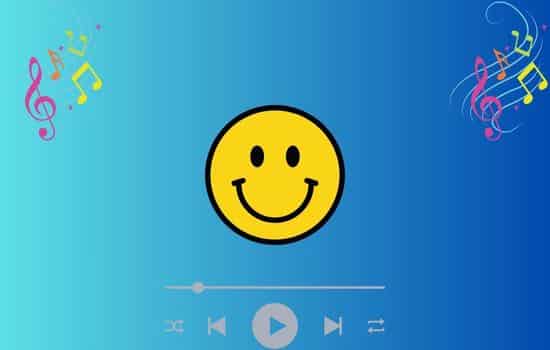Advertisements
Music therapy has been used as methods to improve or improve the physical and mental well-being of individuals.
It is a powerful tool that has only increased in popularity in recent decades, as studies show its effectiveness.
Advertisements
In this article, we explore how music therapy works, what it is used for, and the benefits it offers.
What is music therapy?
Music therapy is a growing field of study in the medical and psychological world.
Advertisements
However, it can combine elements of psychology, neurology, music and much more to help individuals with physical or mental health problems.
It has been used to treat a wide range of problems, such as depression, dementia, autism spectrum disorder, substance abuse disorders, PTSD and many more.
Music therapists use different approaches to create an individualized plan for each patient.
This approach can include composition, improvised singing or playing instruments such as drums and guitar.
Therapists also use guided imagery to help patients visualize their goals while listening to relaxing music.
Music therapists are trained professionals who study the power of music in the mind and body and can be found in hospitals, nursing homes or private offices throughout the country.
The World Federation of Music Therapy (WFMT) is an international organization dedicated to the promotion and development of music therapy.
For example, this type of therapy is based on the idea that music can be used to help people with various physical, mental and emotional challenges.
Secondly, WFMT, music therapy aims to develop the potentialities and restore the functions of the individual so that he can reach his full potential.
The goal is for people to gain better self-awareness, develop social skills, manage stress and emotions more effectively, heal from trauma or injuries, learn new skills, and also deal with medical diagnoses such as depression or anxiety.
These trained professionals use musical activities in combination with psychotherapeutic techniques, such as fear therapy or cognitive-behavioral therapy (CBT) to help individuals achieve a better psychological well-being.
Like music age no brain?
A study published in 2014 examined how the brain functions under the influence of music.
Led by neurologists from Cardiff University, they specifically analyzed jazz music and its effects on brain activity.
To do this, jazz musicians are subjected to a series of cognitive tests while playing their instruments.
Furthermore, we can observe changes in neural activity that indicate the presence of certain emotional processing and memory activities in the brain.
The results will show that listening to jazz can help improve mental alertness, concentration levels and general mood.
It is also suggested that prolonged exposure to music may lead to physical changes in areas of our brains related to emotions and memory formation.
Interestingly, we discovered that different types or genres of music have different effects on various parts of our brains.
Music therapy is a form of psychotherapy that uses music as a tool to improve or improve mental and emotional well-being.
In a recent study conducted by researchers from the University of Jyvaskyla, in Finland, we investigated the effects of music therapy on brain activity.
The study included 12 professional musicians who played different types of music while doing EEGs (electroencephalography tests).
The results will show that you hear certain types of music active in specific regions in your brains.
In addition to verifying whether all these regions were de facto activated, the researchers will ask the musicians to improvise together.
It is possible that they understand how improvisation in a group affects brain activity, a key factor to understand how music therapy works.
These discoveries will reveal that improvisation in the group helped neural connectivity, leading the team to conclude that it could be beneficial for people suffering from depression and anxiety disorders.
SEE ALSO:
Listening to music has positive effects on the brain!
10 music lyrics that make a lot of sense for life
Musical memory reinforces our identity
How does music therapy work?
Music therapy is an art of healing that uses music to help people who need emotional, physical, mental and spiritual healing.
It is a complex discipline that requires specialized skills and knowledge to be successfully completed.
Thus, it can be quite difficult to understand what happens in a music therapy session due to the multiplicity of treatment approaches used by professionals.
Music therapy practice evolved over two years, creating various techniques and strategies depending on the patient's needs.
These methods generally involve the use of musical instruments, such as drums or violin, vocal or singing, improvisation and musical analysis.
The objective of music therapy is for patients to become more self-aware and obtain a perception of their feelings through creative activities with sleep.
Benefits of Music Therapy
Heart disease
Research suggests that simply listening to music can reduce heart rate, breathing and blood pressure in patients.
This is an easy development for those with coronary artery disease, as it offers a simple and non-invasive way to manage your condition.
Thus, listening to music demonstrates the effects of the body's autonomic nervous system, responsible for regulating cardiac and respiratory rhythms.
This means that listening to music can act as a form of stress relief for those living with coronary artery disease, calming them down and preventing panic attacks or other symptoms caused by high levels of anxiety.
Additionally, researchers have discovered that different types of music can provoke different physiological reactions, making this type of therapy highly individualized.
Neurological disorders
Music therapy is a powerful tool for the treatment of psychological disorders.
It has been used several times to help people who suffer from emotional difficulties.
But it was only in the 1980s that research began to quantify its effects and results.
Music therapy involves the use of music as a form of therapeutic intervention.
Often used alongside other forms of psychotherapy, such as cognitive-behavioral therapy (CBT).
Likewise, over two years, music therapists have achieved tremendous success in helping people suffering from depression, anxiety and PTSD, among many other mental health problems.
In fact, studies have discovered that listening to music can reduce levels of stress hormones, such as cortisol and adrenaline, in individuals struggling against these conditions.
Also, playing an instrument or actively participating in musical activities can help promote autoexpressão.
Simultaneously, it provides an outlet to release negative emotions such as anger and frustration.
AVC
Music triggers a variety of responses in the brain, since music has a direct effect on different areas of the brain responsible for motor skills and memory.
Especially for spill victims, it can help them recover lost function.
Stimulating movement in the affected regions and helping to raise parents who were previously scarce.
Also, music releases endorphins that act as natural pain relievers and generate positive emotions.
As joy or relaxation that helps reduce stress levels linked to recovery processes.
The release of dopamine, which helps our feelings of pleasure and reward, is linked to the activation of neural pathways that can help improve cognitive abilities.
Dementia
It is precisely because it activates so many areas of the brain and with such intensity that music serves as a therapeutic way to treat symptoms such as dementia.
However, research showed that people with dementia can benefit from regular exposure to music in different ways.
Music can help them recall memories, reduce anxiety and depression, improve communication skills and improve physical coordination.
Additionally, you help patients regain a sense of control over their lives, allowing them to express themselves in a creative way.
There is evidence that music therapy can be used as other treatments.
Such as medications or cognitive therapies, in order to further improve the results of individuals with dementia.
Music therapists use musical instruments, singing and other activities to help patients become more deeply involved in their emotions and thoughts.
Autism
Autism, also known as Autism Spectrum Disorder, is a disorder that causes problems in language development, communication and social interaction.
Meanwhile, music therapy is one of many interventions used to help individuals with autism reach their full potential.
It involves the use of music-based activities and strategies to promote positive behavioral changes, increase skills, and improve cognitive functioning.
We can offer a variety of benefits for people with autism, providing a pleasant activity that improves the quality of life of the individual.
Using music therapy techniques, such as singing, playing instruments, and improvising music, individuals can increase their ability to interact with others.
Develop new skills and learn to express emotions appropriately.
It also helps people with autism improve their communication skills.
Offering opportunities to practice listening and listening while engaging in a fun activity.

Social life
It is a well-established form of therapeutic treatment that uses music to stimulate creative potential and communicative abilities.
It mobilizes psychological, biological and cultural aspects, offering a range of benefits that can help the individual face various problems.
How doenças e deficiências mentais.
TO music therapy It is used in a variety of environments, from educational environments to clinical environments such as nursing homes or hospitals.
Meanwhile, music's unique ability to reach people on both an emotional and spiritual level makes it an excellent tool for therapists.
Whether it is better to coordinate physically or work with difficult emotions, music therapy can be adapted to meet individual needs.
Also, research has shown that music helps the brain develop ways that can help in healing, stimulating creative thinking skills.




